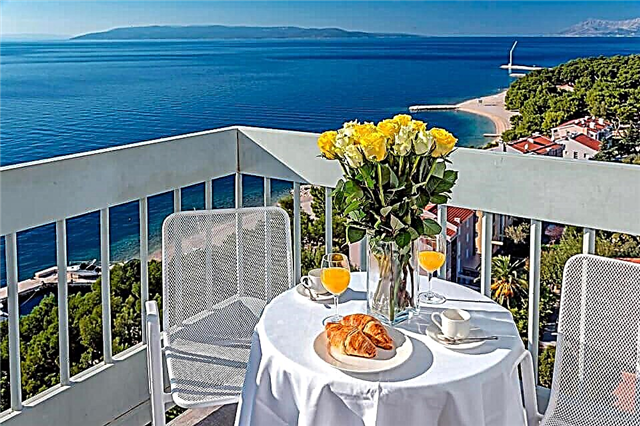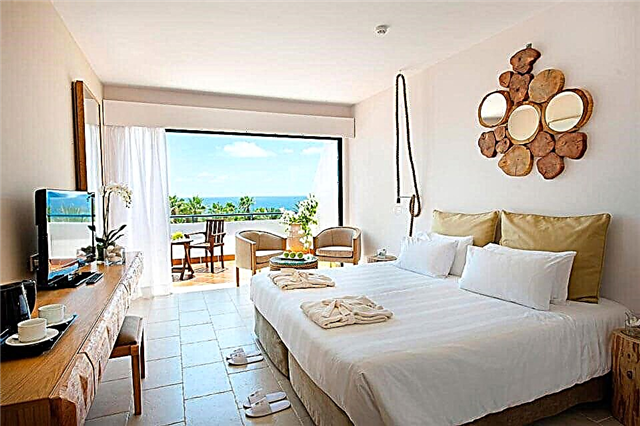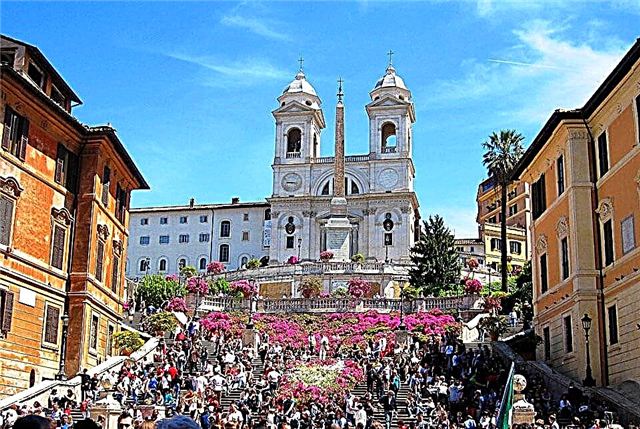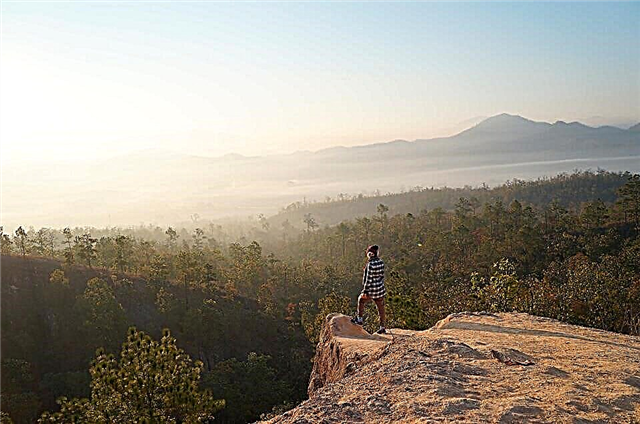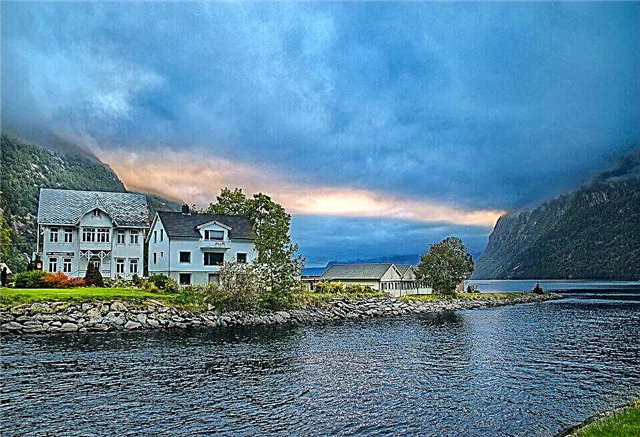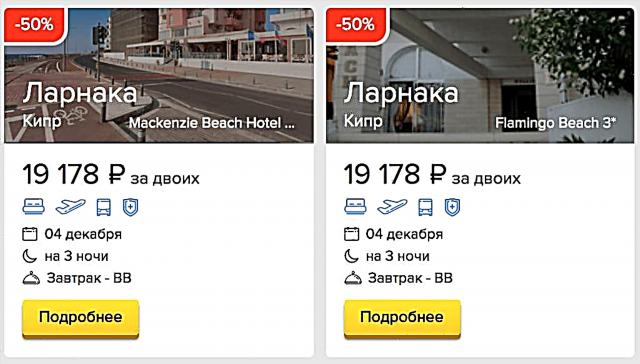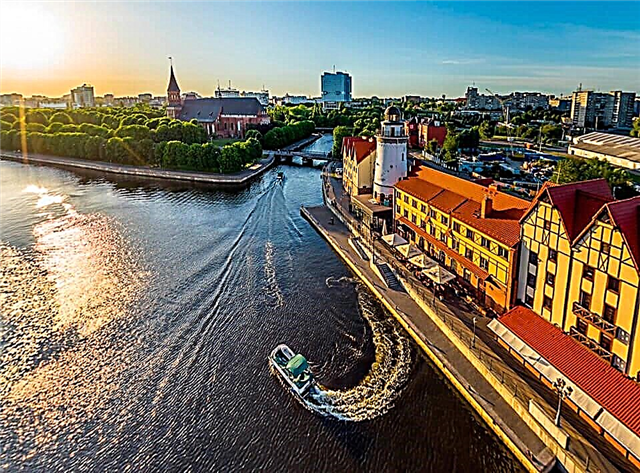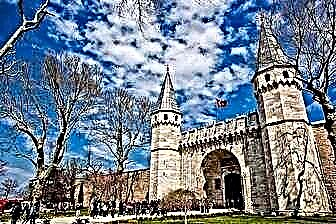Amazing and fabulous Istanbul is a bridge between two continents, a meeting place for Western and Eastern cultures and an invaluable historical heritage of all mankind. The location of the city is so successful that human settlements flourished here long before the advent of our era. Ancient Byzantium, pompous Constantinople and splendid Istanbul - all these are the names of one city lying on the picturesque shores of the Bosphorus.
In the city, a tourist will be able to see the treasures of two cultures at once - Byzantine and Ottoman. The incomparable Hagia Sophia rivals the Blue Mosque in beauty, the age-old secrets of Topkany Palace are safely kept behind powerful walls, and the eastern city bazaars add color to busy streets. All this is Istanbul: noisy, diverse and incomparable.

The best hotels and hotels at affordable prices.
from 500 rubles / day
What to see and where to go in Istanbul?
The most interesting and beautiful places for walking. Photos and a short description.
Saint Sophie Cathedral
This unique historical monument is a masterpiece of Byzantine architecture, a symbol of the flourishing of Christianity and witness to the death of the Byzantine Empire. The cathedral was founded during the reign of Emperor Justinian in the 6th century AD. Over the 14 centuries of its existence, it was subjected to destruction and ruin several times. After the conquest of Constantinople, the temple was converted into a mosque, destroying many Christian values. At the beginning of the 20th century, the Turkish authorities decided to assign the status of a museum to Hagia Sophia.

Blue Mosque
A Muslim temple built during the reign of Sultan Ahmed I at the beginning of the 17th century. During the construction, rare and precious types of marble were used. The architecture of the Blue Mosque is a harmonious combination of Ottoman and Byzantine manners, the ingenious project of Khoja Mimar Sinan Agha, who is deservedly nicknamed "the jeweler" among the people. The building is decorated with a large number of ceramics from Iznik sky-colored tiles, which is why it was named the Blue Mosque.

Suleymaniye Mosque
Another masterpiece of the architect Sinan, which has become a symbol of the power of the Ottoman Empire. After the completion of construction, the master predicted that the temple would stand forever. As long as his prophecy is true - for four centuries the building has survived several dozen serious earthquakes and has survived. Suleymaniye Mosque is the largest temple in Istanbul. This is a whole complex consisting of madrasahs, baths, a library, an observatory, and prayer rooms.

Golden Horn Bay
A strait on the Mediterranean Sea, where in the 7th century BC. a small Greek settlement was formed. Over time, it turned into the city of Byzantium, and later into Constantinople. The bay got its name from the shape of an animal's horn and the incredible beauty of the coastal scenery. In the writings of ancient Greek scientists, the name "Horn of Byzantium" is also mentioned. In past centuries, the bay was considered an important strategic site.

Bosporus strait
The Bosphorus Strait is the maritime border between the Asian and European parts of Turkey and is often called the “soul of Istanbul”. Several picturesque bridges are thrown across the strait; magnificent sultan's palaces, fortresses and old quarters stand on the banks. Istanbul cannot be imagined without the Bosphorus. This narrow strip of water has repeatedly become the subject of disputes between states and the arena of military clashes.

Galata Tower
The prototype of the modern stone tower was a wooden Byzantine building of the 6th century, built under the Emperor Justinian. After the conquest of Byzantium by the Turks in the 15th century, the tower was used as a lighthouse, fire tower and prison. The structure is located on a hill, so it is clearly visible from the streets of Istanbul. From the observation deck of the tower, you can admire the picturesque architecture of the city.

Maiden's Tower
The Maiden Tower (Kyz Kulesi) was built in the waters of the Bosphorus on a small rocky island. It is believed that fortifications on this tiny piece of land date back to 400 BC. during the war of Athens with Sparta. During the Ottoman rule, a lighthouse was built on the island. The Maiden Tower managed to serve as a prison, isolation ward, utility room for the military and sailors, and an exhibition gallery. An observation deck and a restaurant have been located here since the end of the 20th century.

Dolmabahce Palace
The palace complex, built during the reign of Sultan Abdul-Majid I. The ruler wanted to surpass the European rulers in luxury and size, so the palace turned out to be really huge: its walls stretch for 600 meters along the Bosphorus, the total area is 45 thousand square meters. After the formation of the Turkish Republic, Ataturk settled on the ruins of the Ottoman Empire in Dolmabahce. After his death, the palace became a museum.

Topkapi Palace
The most famous and famous palace in Istanbul. Until the middle of the 19th century, it was the main residence of the Ottoman sultans. The complex was erected on the ruins of the palace of the Byzantine emperors by order of Mehmet the Conqueror in the 15th century. Topkany is divided into four parts. Separate entrances lead to each of them: the Gate of the Lord (office and official premises), the Gate of Welcome (office and treasury, the sitting room of the sofa), the Gate of Bliss (inner chambers and harem).

Beylerbey Palace
A baroque palace in the Asian side of Istanbul, built in the middle of the 19th century. The building was used as the summer residence of the Ottoman sultans. In the interior decoration of the palace premises, a mixture of Eastern and European traditions is used, which makes the interiors quite original. The layout is done in a typical Turkish style - patios, a separate pavilion for the harem and rooms for the hamam.

Rumelihisar fortress
A powerful fort on the picturesque bank of the Bosphorus, built in the 15th century during the reign of Sultan Mehmed II Fatih. The defensive walls of the fortress were erected in just a few months. Rumelihisar was built specifically for the storming of Constantinople in order to cut off the city from the strait. After the fall of the Byzantine Empire, the fortress was used as a customs point. The restoration was carried out in the middle of the 20th century.

Yildiz
A picturesque palace and park complex on the coast of the Sea of Marmara. First, on the site of the modern palace, a villa was built for the mother of Sultan Selim III. Yildiz is a building that has embodied several architectural styles: European classics, baroque, oriental style. The palace is surrounded by a magnificent flowering park. Since 1994, a museum has been located on its territory.

Hippodrome Square
A place where horse races were held in the days of the Roman Empire 2 thousand years ago. During the period of Ottoman rule, the amphitheater on the square was dismantled, many of its fragments were used to build the pearl of Istanbul - the Blue Mosque. On the square there are obelisks of the Byzantine emperors Constantine Porphyrogenitus and Theodosius, as well as an ancient Greek serpentine column.

Taksim Square
The central square of the Beyoglu historic district. It separates the old quarters of Istanbul from the new ones and serves as an important transport hub for the city. In the center of the square there is a monument erected in honor of the formation of the Turkish Republic. It consists of sculptures of the military leaders Kemal Ataturk, Fevzi Cakmak, Mustafa, Ismet Inonu and other revolutionaries who contributed to the fall of the monarchy.

Istiklal street
Pedestrian street connecting Taksim Square and Galat District. Once this alley was the central avenue of Constantinople. The name "Istiklal" is translated from Turkish as "independence".The spirit of freedom and independence really reigns on the street. It is inundated with walking tourists, nightclubs, restaurants and inexpensive eateries. Temples and street performers stand one meter apart, while modern bars sit side by side with traditional Turkish shops.

Church of St. Irene
An ancient temple in the Sultanahmet district, located in the historical center of Istanbul. It is believed that the church was erected on the ruins of the ancient temple of Aphrodite in the 4th century AD. BC, thus, this temple is older than Hagia Sophia. Before the appearance of the Cathedral of St. Sophia, the Church of St. Irene was the main temple of Constantinople; the meeting of the Second Ecumenical Council under the leadership of Emperor Theodosius I was held here.

Kariye Museum
The Byzantine Church of Christ the Savior, also known as the Chora Monastery. The temple was founded in the 4th century AD. e., at that time he was outside the city walls of Constantinople. Inside the building, the original Byzantine mosaics and frescoes of the 11th century have been preserved, which are of great cultural value. The Kariye Museum is located in an ordinary residential area away from the main attractions.

Archaeological Museum of Istanbul
A museum that houses unique archaeological finds telling about the history of human development. Many exhibits were preserved thanks to the ban on the export of historical monuments from the Ottoman Empire, which was introduced in 1884. The museum houses the very first peace treaty recorded in history. The complex includes three large buildings, which house more than 1 million exhibits.

Modern Art Museum
Istanbul cannot afford to lag behind European capitals and therefore, like many of them, has its own contemporary art museum. The gallery was opened in 2004. This place hosts all kinds of exhibitions, meetings and honors of contemporary artists. The room is equipped with the latest technology, so you can often see trendy installations here.

Miniaturk
The park is located on the shores of the Golden Horn Bay. On its territory there are models of Turkish and world landmarks, made in a ratio of 1:25. There are more than a hundred different figures in Miniaturk, including the Blue Mosque of Istanbul, the Hagia Sophia, the Greek Temple of Artemis, and the Topkany Palace. The park also has a miniature railway, an airport and a seaport.

Valens Aqueduct
Preserved part of the ancient water supply system of Constantinople. The approximate date of construction of the aqueduct is 375 AD. The total length of the stone aqueduct was more than 550 km, the Valens aqueduct is a small section of 1.5 km, connecting two neighboring city hills. In the VII and VIII centuries. the structure was repaired. The aqueduct worked successfully until the 12th century, after which it was abandoned. Under Sultan Suleiman the Magnificent, it was again repaired and used to deliver water to Topkapi.

Basilica Cistern
An underground reservoir in the historical center of Istanbul, equipped at the beginning of the 4th century. The cistern served as a city water reservoir. Water was delivered here from the Belgrade forest through the aqueduct system. The ceiling of the reservoir is supported by rows of marble columns that were formerly part of ancient temples. During the reign of the Ottomans, the cistern was not used, in 1987 it was cleared and a museum was opened on the territory.

Constantinople city walls
The defensive system of the Byzantine capital, preserved from the 5th century A.D. It was built to protect the city from the raids of barbarian tribes. The walls have survived to this day in good condition, largely thanks to the Ottoman conquerors. After the conquest of Constantinople, they restored all the buildings. In the first half of the 20th century, the walls began to be dismantled, but in the 80s. it was decided to restore.

Galata bridge
Bridge over the Golden Horn Bay. The structure was built in the middle of the 19th century during the reign of Abdul-Majid I. Another common name for the structure is "Valide Bridge", since the mother of the Sultan took an active part in the construction. The bridge has undergone five reconstructions; in 2005, tram lines were laid across it.

Bosphorus bridge
A modern suspension bridge over the Bosphorus, inaugurated in 1973 in the presence of the President and Prime Minister of the Republic of Turkey. The structure is supported by two metal towers at a distance of about 1 km. apart. The total length of the bridge is 1560 meters. In the evening, multi-colored lighting turns on, painting the bridge in bright colors. During the most busy hours, the structure sags by 90 cm.

Haydarpasha station
A grandiose project by German architects of the early 20th century. The station was supposed to become a major railway junction connecting the Ottoman Empire with Damascus, Cairo, Jerusalem and Medina. But History decreed otherwise - the empire fell, and a more modest role was destined for Haydarpash. Now the station serves internal eastern routes to the borders with Iran, Armenia and Syria.

Gulhane Park
A city park designed for walking and relaxing from the summer heat of Istanbul. It is famous for its large number of pink flower beds, which have been preserved since the Sultan's times. Once Gulhane was part of the palace complex, only the ruler and courtiers had the right to walk in the park. At the end of the 19th century, it was open to everyone. The territory has a large playground, a cafe, a small zoo and an aquarium.

Cevahir shopping center
Best shopping destination and sixth largest shopping mall in the world. About 400 shops, dozens of cafes and restaurants are located on 6 floors. As in the leading European capitals, here you can find products of all the most famous and promoted world brands, from democratic brands to designer houses. There is an amusement park in the underground part of the building.

Egyptian bazaar
A traditional oriental bazaar where sellers can communicate with customers in many languages. Previously, goods brought from the East were sold here: spices, herbs, medicines. Nowadays, the bazaar is more focused on tourists, so a significant part of its area is occupied by souvenir shops. Here you can also buy interesting jewelry, dishes, fabrics and carpets, oriental sweets.

Grand bazaar
The largest covered market in the world, covering an area of 3.7 thousand. It is a whole “city within a city” with its own way of life, rhythm of life and laws. The bazaar consists of 66 streets and 4 thousand shops and shops. There are mosques, a school, a bathhouse, a cafe, currency exchange offices and numerous warehouses. Several tens of thousands of people visit the bazaar every day. The marketplace appeared in the 15th century immediately after the capture of Constantinople on the site of the old Byzantine market.


